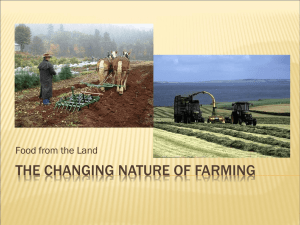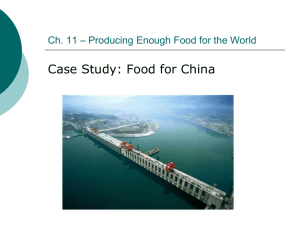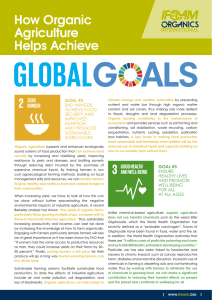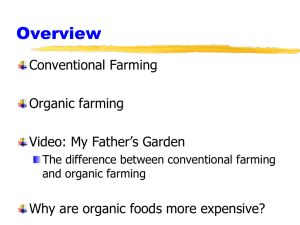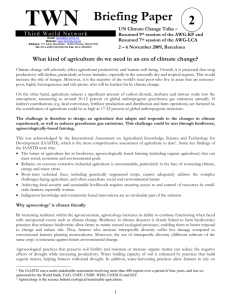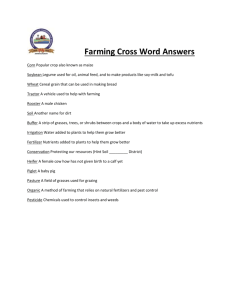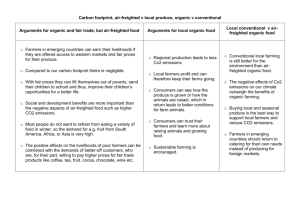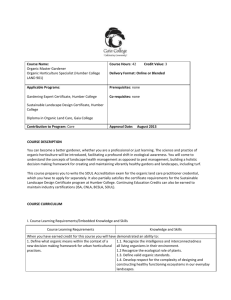February, 2014 A Growth Stock for the Next Generation
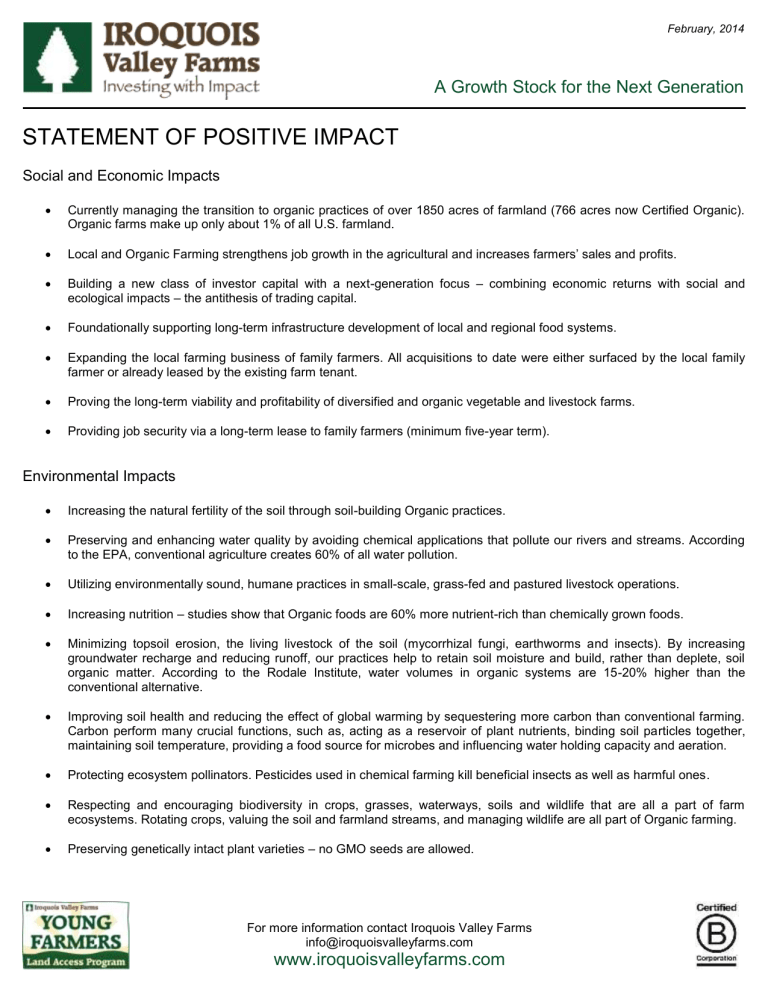
February, 2014
A Growth Stock for the Next Generation
STATEMENT OF POSITIVE IMPACT
Social and Economic Impacts
Currently managing the transition to organic practices of over 1850 acres of farmland (766 acres now Certified Organic).
Organic farms make up only about 1% of all U.S. farmland.
Local and Organic Farming strengthens job growth in the agricultural and increases farmers’ sales and profits.
Building a new class of investor capital with a next-generation focus – combining economic returns with social and ecological impacts – the antithesis of trading capital.
Foundationally supporting long-term infrastructure development of local and regional food systems.
Expanding the local farming business of family farmers. All acquisitions to date were either surfaced by the local family farmer or already leased by the existing farm tenant.
Proving the long-term viability and profitability of diversified and organic vegetable and livestock farms.
Providing job security via a long-term lease to family farmers (minimum five-year term).
Environmental Impacts
Increasing the natural fertility of the soil through soil-building Organic practices.
Preserving and enhancing water quality by avoiding chemical applications that pollute our rivers and streams. According to the EPA, conventional agriculture creates 60% of all water pollution.
Utilizing environmentally sound, humane practices in small-scale, grass-fed and pastured livestock operations.
Increasing nutrition – studies show that Organic foods are 60% more nutrient-rich than chemically grown foods.
Minimizing topsoil erosion, the living livestock of the soil (mycorrhizal fungi, earthworms and insects). By increasing groundwater recharge and reducing runoff, our practices help to retain soil moisture and build, rather than deplete, soil organic matter. According to the Rodale Institute, water volumes in organic systems are 15-20% higher than the conventional alternative.
Improving soil health and reducing the effect of global warming by sequestering more carbon than conventional farming.
Carbon perform many crucial functions, such as, acting as a reservoir of plant nutrients, binding soil particles together, maintaining soil temperature, providing a food source for microbes and influencing water holding capacity and aeration.
Protecting ecosystem pollinators. Pesticides used in chemical farming kill beneficial insects as well as harmful ones.
Respecting and encouraging biodiversity in crops, grasses, waterways, soils and wildlife that are all a part of farm ecosystems. Rotating crops, valuing the soil and farmland streams, and managing wildlife are all part of Organic farming.
Preserving genetically intact plant varieties – no GMO seeds are allowed.
For more information contact Iroquois Valley Farms info@iroquoisvalleyfarms.com

